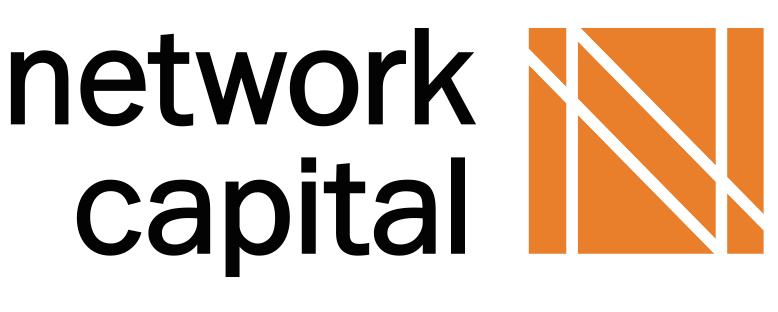Best Pool Financing Options in 2025
Some or all of the mortgage lenders featured on our site are advertising partners of NerdWallet, but this does not influence our evaluations, lender star ratings or the order in which lenders are listed on the page. Our opinions are our own. Here is a list of our partners.
A swimming pool can turn your backyard into a summertime oasis. But adding an above-ground or in-ground pool can be expensive, so you may need to finance the project.
Installing a pool in your backyard could cost more than $100,000, depending on the size and features. At that price point, several financing options can help distribute the cost over time.
Best pool loan options
There are a handful of ways to finance a pool, but these are the best options.
Personal loans
With a personal loan, you receive funds in a lump sum and repay with interest in fixed monthly installments. This is an unsecured loan, which means no collateral is necessary.
Instead, a lender uses information, such as your credit score, income and other debts, to decide whether you qualify for a loan and what annual percentage rate to offer you. Banks, credit unions and online lenders offer pool loans. Each type of lender has its own borrower criteria and loan features.
Here’s what you can expect if you use a personal loan to pay for a pool:
Maximum loan amount: Up to $50,000 or sometimes $100,000, depending on the lender.
Repayment term: Two to seven years.
APRs: 6% to 36%, but the lowest rates often go to borrowers with good or excellent credit (scores of 690 or higher).
on SoFi's website
on SoFi's website
None
8.99-35.49%
$5,000-$100,000

on LightStream's website
on LightStream's website
660
6.49-25.29%
$5,000-$100,000

on Upgrade's website
on Upgrade's website
580
7.99-35.99%
$1,000-$50,000
» MORE: How to get a personal loan
Applying for a joint personal loan can improve your chances of qualifying, getting a larger loan or receiving a lower interest rate. A co-borrower is equally responsible for payments and has equal access to the funds. While home equity loans and lines of credit must include any co-homeowners listed on the deed; a personal loan can be solo or joint.
Home equity loans
A home equity loan is a second mortgage that’s structured similarly to a personal loan with fixed APRs and monthly payments. If you’re comfortable using your home as collateral for the loan, home equity loans can be a low-rate financing option. Generally speaking, it makes sense to use a home equity loan to fund a pool if the pool and upgrades to the yard will increase your home’s value. It's important to note that home equity loans often have a minimum initial draw — $15,000 for example — so a home equity loan may not be the right solution for a lower cost pool.
Here’s what you can expect if you use a home equity loan to pay for a pool:
Maximum loan amount: 80% to 90% of your home’s value, minus what you owe on the mortgage.
Repayment term: Up to 30 years.
APRs: Vary depending on the lender.

at Better
at Better
680
90%
National
100%
N/A
660
85%
» MORE: Compare home equity loans
Home equity lines of credit (HELOC)
A HELOC is an open credit line that you can draw on as needed for a period of time (usually 10 years), making it ideal for projects that last a long time or have surprise costs. A HELOC also makes sense if you plan to do multiple projects over many years, like build a pool this year, then paint your house two years later. They have variable interest rates, so your monthly payments could fluctuate. Similar to home equity loans, HELOCs often have a minimum initial draw to open the line of credit.
Here’s what you can expect if you use a HELOC to pay for a pool:
Maximum loan amount: 80% to 90% of your home’s value, minus what you owe on the mortgage.
Repayment term: A 10-year draw period followed by a 20-year repayment period is common.
APRs: Vary depending on the lender.
National
80%
660
National
89.90%
600
National
85%
660
» MORE: Compare HELOC lenders
Alternative ways to pay for a pool
While the options listed above are the best options, these are some good alternatives, depending on the cost of the pool and your financial situation.
Credit cards
A credit card with a 0% APR for an introductory period can be a great option when used strategically for home improvement projects. If you have good or excellent credit, you may qualify for a card with a high enough limit to pay for part or all of a new pool, as long as you can pay off the balance before the introductory period end.
Here’s what you can expect if you use a credit card to pay for a pool:
Loan amount: Depends on your credit limit.
Repayment terms: Introductory period, typically 12 to 21 months.
APRs: 0% for the introductory period (up to 21 months), then can go up to almost 30%.
Cash-out refinance
A cash-out refinance replaces your current mortgage with a new, larger loan. You “cash out” the difference between your new loan and the amount owed, and use it to pay for the pool. Because it’s a brand-new mortgage, you’ll have to get a home appraisal and pay closing costs, and the loan will have new terms. This is worth considering only if rates are lower than what you’re currently paying.
Here’s what you can expect if you use a cash-out refinance to pay for a pool:
Loan amount: 80% to 90% of your home’s value, minus what you owe on the mortgage.
Repayment terms: 15 years and 30 years are common mortgage repayment terms.
APRs: Vary depending on the lender.
In-house financing
Your contractor may offer you an in-house financing option, usually through a third-party lender. Because this offer is specific to a new pool, loan amounts may be larger than a personal loan and repayment terms may be longer.
Compare this offer with other financing options to be sure you’re getting a good deal.
Loan amounts, repayment terms and rates can vary by company, but here’s what to expect if you finance through a contractor:
Loan amount: Maximums are often more than $100,000.
Repayment term: Could be up to 30 years, depending on the contractor.
APRs: Vary depending on the contractor.
How much do pools cost?
The cost of a pool can vary significantly depending on what materials you use, whether it’s in- or above-ground, and additional features.
An inground pool typically costs from about $44,500 to $87,500, according to Angi, a website that connects homeowners with home service professionals. A large pool with custom features can cost over $100,000.
An above-ground pool can cost from $1,000 to $6,000 or more, depending on the size, type and additional features.
Methodology
Personal loan methodology
NerdWallet’s review process evaluates and rates personal loan products from more than 35 financial technology companies and financial institutions. We collect over 50 data points and cross-check company websites, earnings reports and other public documents to confirm product details. We may also go through a lender’s pre-qualification flow and follow up with company representatives. NerdWallet writers and editors conduct a full fact check and update annually, but also make updates throughout the year as necessary.
Our star ratings award points to lenders that offer consumer-friendly features, including: soft credit checks to pre-qualify, competitive interest rates and no fees, transparency of rates and terms, flexible payment options, fast funding times, accessible customer service, reporting of payments to credit bureaus and financial education. Our ratings award fewer points to lenders with practices that may make a loan difficult to repay on time, such as charging high annual percentage rates (above 36%), underwriting that does not adequately assess consumers’ ability to repay and lack of credit-building help. We also consider regulatory actions filed by agencies like the Consumer Financial Protection Bureau. We weigh these factors based on our assessment of which are the most important to consumers and how meaningfully they impact consumers’ experiences.
NerdWallet does not receive compensation for our star ratings. Read more about our ratings methodologies for personal loans and our editorial guidelines.
Home equity loan methodology
The star ratings on this page reflect each lender's performance in NerdWallet’s home equity loans category. For inclusion in this roundup, lenders must offer home equity loans and achieve a star rating of 4.5 or above in the home equity loan rubric from NerdWallet. We scored the category and chose lenders for this page using the following methodology:
NerdWallet reviewed more than 40 mortgage lenders, including the majority of the largest U.S. mortgage lenders by annual loan volume (measured among lenders with at least a 1% market share), lenders with significant online search volume and those that specialize in serving various audiences across the country.
All reviewed mortgage lenders that offer home equity loans were evaluated based on (1) maximum CLTV, (2) application fees, (3) closing costs, (4) whether or not an appraisal is required, (5) range of repayment terms, (6) rate transparency, (7) digital application availability and (8) customer support options. The highest scoring lenders appear on this page.
NerdWallet solicits information from reviewed lenders on a recurring basis throughout the year. All lender-provided information is verified through lender websites and interviews.
HELOC methodology
The star ratings on this page reflect each lender's performance in NerdWallet’s HELOC category. For inclusion in this roundup, lenders must offer HELOCs and achieve a star rating of 4 or above in the HELOC rubric from NerdWallet. We scored the category and chose lenders for this page using the following methodology:
NerdWallet reviewed more than 40 mortgage lenders, including the majority of the largest U.S. mortgage lenders by annual loan volume (measured among lenders with at least a 1% market share), lenders with significant online search volume and those that specialize in serving various audiences across the country.
All reviewed mortgage lenders that offer HELOCs were evaluated based on (1) HELOC loan volume, (2) maximum CLTV, (3) whether they offer a fixed-rate option, (4) annual fees, (5) origination fees, (6) transaction fees, (7) initial draw requirements, (8) length of draw and repayment terms, (9) application availability online or via mobile app, (10) range of customer support options, (11) average closing time transparency, (12) interest rate transparency and (13) transparency regarding how to access funds. A recent regulatory action against a lender may affect its HELOC star rating. The highest scoring lenders appear on this page.














